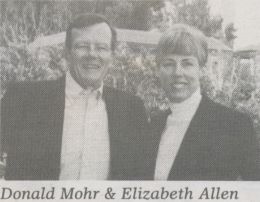 Today's the day. You have selected a talented mediator and
prepared yourself and your client for the mediation. What can you do to maximize your
chances of reaching a settlement? Today's the day. You have selected a talented mediator and
prepared yourself and your client for the mediation. What can you do to maximize your
chances of reaching a settlement?First, prepare yourself mentally. Recognize that a
settlement will be reached only if both sides' major goals are met. Generally people say
"yes" to an offer that seems fair to them, even when it does not track with the
law. For instance, a homeowner may give a contractor a second chance to repair a
construction defect, even though the homeowner may be legally entitled to recover money
damages.
What seems fair to both sides is what counts, so avoid getting overly invested in
achieving an outcome that conforms to legal precedent. If you analyze the case only from a
legal perspective, you will shut down your creative side and miss the innovative solutions
that are often the key to a settlement.
Once the mediation starts, let your client do most of the talking. He or she knows the
facts better than you do. When you get your first opportunity to "caucus" with
the mediator, talk candidly about the relative importance to your client of reaching a
negotiated settlement. If further litigation is not financially feasible, get the message
across to the mediator early that you must leave with a settlement.
When you and your client are alone, during the mediator's caucuses with the other side,
discuss the fact that proceeding with the case in court carries with it an element of
unpredictability. Do not allow your client to engage in the fantasy that a visit to the
courthouse will automatically result in a victory.
Avoid casual banter with the mediator, or worse yet, with opposing counsel. Your client
will never forgive you if you appear to have connections with the other side. If you are
left to wait in the same room with the other side, request a separate waiting room, so
that you can talk privately with your client and avoid the appearance of fraternizing with
the "enemy."
Once the negotiations begin, keep the ball in the air. When the other side tosses you
an unacceptable offer, don't say no. Instead, put just enough spin on it to get it back to
them. All that you need to do is to change their last offer or your own just enough to
make it different.
Your most important job during mediation is to listen carefully and serve as your
client's sounding board. Look for opportunities to propose something that will be easy for
your client to give and valuable for the other side to receive. Help your client think
through the pros and cons of accepting each offer.
Your goal should be to assist your client in reaching a fully informed, voluntary
agreement. Any attempt to hurry the process or to exert pressure to settle without ample
time to reflect is counterproductive.
Voluntary compliance and long-term satisfaction are the hallmark of an excellent
agreement. The old saying that a good agreement is one with which the parties are equally
dissatisfied is baloney. A good agreement is one where both sides feel they got a fair
shake. Don't settle for less. If you have chosen a good mediator, he or she will take
things slowly. In the long run, this is the best approach.
Support your client's right to sleep on a proposal and get back to the other side
later. If some flaw in the proposal comes to light upon reflection, welcome it - better
now than after the agreement is signed. Both sides are better served by a settlement that
is fine-tuned over the period of a week than by one that is arrived at under the pressure
of a deadline.
If it appears to you that negotiations have come to a stalemate, buy some time. Don't
burn your bridges by declaring an impasse. Rather, agree to adjourn the mediation
"for now." It's best to schedule a time to reconvene, in the event that someone
comes up with a new idea. A week down the road, everyone will have had a chance to think
about the offers. Sometimes the passage of time alone changes the circumstances, sheds new
light on a proposal, or results in someone coming up with a different possibility. Don't
give up just because you reach the end of one session. Many mediations take two or more
sessions to complete, which is why it's usually better to schedule two half-days than one
full one in the first place.
When you represent someone in a mediation, you play a different role than you do in a
courtroom, but one that is no less challenging or important. As you hone your skills in
this arena, you will enhance your value to your clients and experience the rewards that
come from knowing that you assisted in resolving a dispute in a way that left both sides
satisfied.
 Elizabeth L. Allen is a member of the
California bar and co-owner of Coast To Coast Mediation Center in Encinitas. She and her
husband, Donald D. Mohr, give public and private workshops on divorce and civil mediation.
They are the authors of "Affordable Justice: How to settle any dispute, including
divorce, out of court," and can be reached at 1-800/748-6462 or at www.ctcmediation.com. Elizabeth L. Allen is a member of the
California bar and co-owner of Coast To Coast Mediation Center in Encinitas. She and her
husband, Donald D. Mohr, give public and private workshops on divorce and civil mediation.
They are the authors of "Affordable Justice: How to settle any dispute, including
divorce, out of court," and can be reached at 1-800/748-6462 or at www.ctcmediation.com.
|

